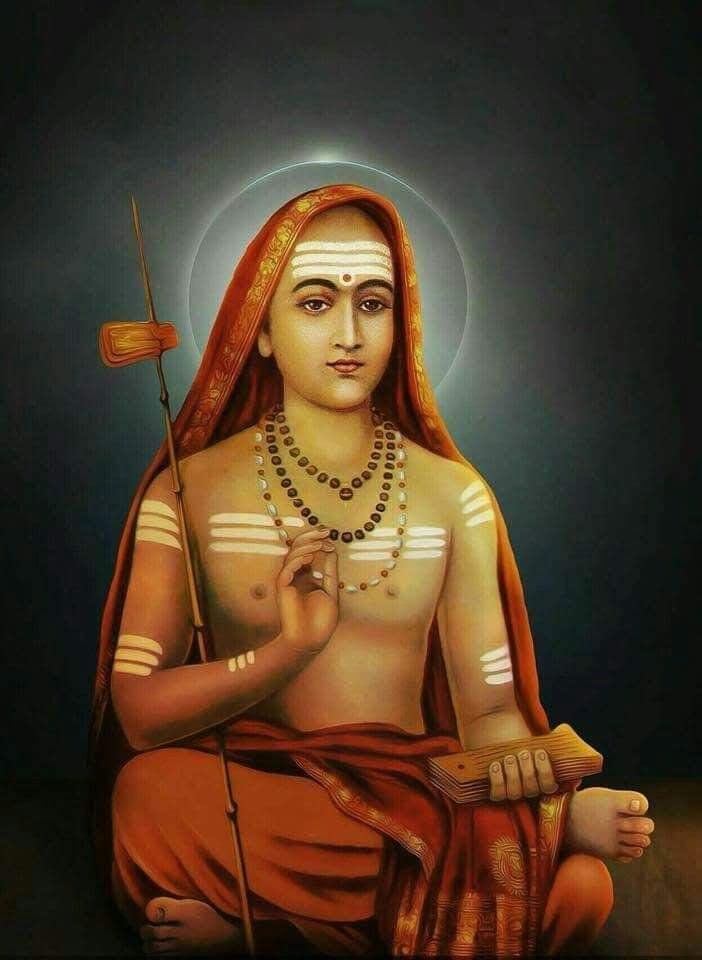Adi Shankara, often referred to as Shankaracharya, stands as one of the towering figures in the history of Indian philosophy and spiritual thought. Born in the 8th century CE, his life and teachings have had an enduring impact on Hinduism and spiritual traditions in India. In this exploration, we’ll delve into his life, philosophy, and legacy, capturing the essence of this profound thinker and spiritual leader.
Early Life and Education
Adi Shankara was born in the village of Kaladi, located in present-day Kerala, India, around 788 CE, according to traditional accounts. His parents, Sivaguru and Aryamba, were devout Hindus. Legend has it that Shankara’s birth was accompanied by miraculous events, foretelling his future greatness.
From an early age, Shankara exhibited a keen intellect and a deep interest in spiritual matters. He mastered the Vedas and other sacred texts under the guidance of his guru, Govinda Bhagavatpada. Under his guru’s tutelage, Shankara delved into the study of Advaita Vedanta, a school of Hindu philosophy that emphasizes the non-dual nature of reality.
Travels and Teachings
After completing his education, Shankara embarked on a remarkable journey across India. His travels took him far and wide, engaging in philosophical debates, and spreading the message of Advaita Vedanta. Shankara’s debates with scholars from other philosophical traditions are legendary, earning him a reputation as a formidable debater and intellectual.
One of Shankara’s notable achievements was the establishment of the four mathas (monastic institutions) in the cardinal directions of India – Sringeri (in the south), Dwarka (in the west), Puri (in the east), and Badrinath (in the north). These mathas served as centers of learning and spiritual practice, preserving and propagating Shankara’s teachings for future generations.
Advaita Vedanta
At the heart of Shankara’s philosophy is the concept of Advaita, which translates to “non-duality.” According to Advaita Vedanta, the ultimate reality (Brahman) is devoid of any distinctions or multiplicity. It is the underlying unity that pervades the entire universe. Shankara emphasized the unity of the individual soul (Atman) with Brahman, asserting that the true nature of the self is identical to the ultimate reality.
Shankara’s teachings challenged prevailing philosophical notions and religious practices of his time. He argued against the ritualistic interpretation of the Vedas and advocated for the supremacy of knowledge (jnana) in attaining liberation (moksha). According to Shankara, true liberation comes from realizing one’s identity with Brahman through self-inquiry and transcendence of ignorance (avidya).
Works and Legacy
Shankara’s philosophical insights are encapsulated in his numerous works, which include commentaries on the Upanishads, the Bhagavad Gita, and the Brahma Sutras – collectively known as the Prasthanatrayi. His commentaries serve as authoritative texts in the Advaita Vedanta tradition, elucidating the profound truths of Vedanta with clarity and precision.
Among Shankara’s most celebrated compositions is the Vivekachudamani (Crest Jewel of Discrimination), a poetic text that expounds on the path to spiritual realization. In this work, Shankara delineates the distinction between the eternal self (Atman) and the transient phenomena of the world, guiding seekers on the quest for self-knowledge.
Shankara’s legacy extends far beyond his philosophical contributions. He played a crucial role in revitalizing Hinduism during a period of intellectual ferment and sectarian strife. His efforts to unify various strands of Hindu thought under the umbrella of Advaita Vedanta helped to establish a cohesive philosophical framework that continues to inspire seekers of truth to this day.
Controversies and Criticisms
Despite his enduring influence, Shankara’s life and teachings have not been without controversy. Some scholars have questioned the historical accuracy of certain events attributed to him, while others have critiqued his philosophical positions. Shankara’s emphasis on monism and his critique of dualistic schools of thought have been subject to criticism from rival philosophical traditions.
Moreover, Shankara’s advocacy for the renunciant lifestyle and his hierarchical view of society have been criticized for their perceived elitism and detachment from the social realities of his time. Critics argue that Shankara’s teachings may not be applicable or relevant to all individuals, especially those engaged in worldly pursuits.
Conclusion
Adi Shankara’s life and teachings continue to inspire millions of people around the world. His profound insights into the nature of reality, the self, and the path to liberation remain as relevant today as they were centuries ago. Through his intellectual rigor, spiritual wisdom, and tireless efforts to disseminate Advaita Vedanta, Shankara left an indelible mark on the spiritual landscape of India and the world. As we reflect on his legacy, we are reminded of the timeless wisdom contained in his teachings – a beacon of light guiding seekers on the journey to self-realization and ultimate freedom.






